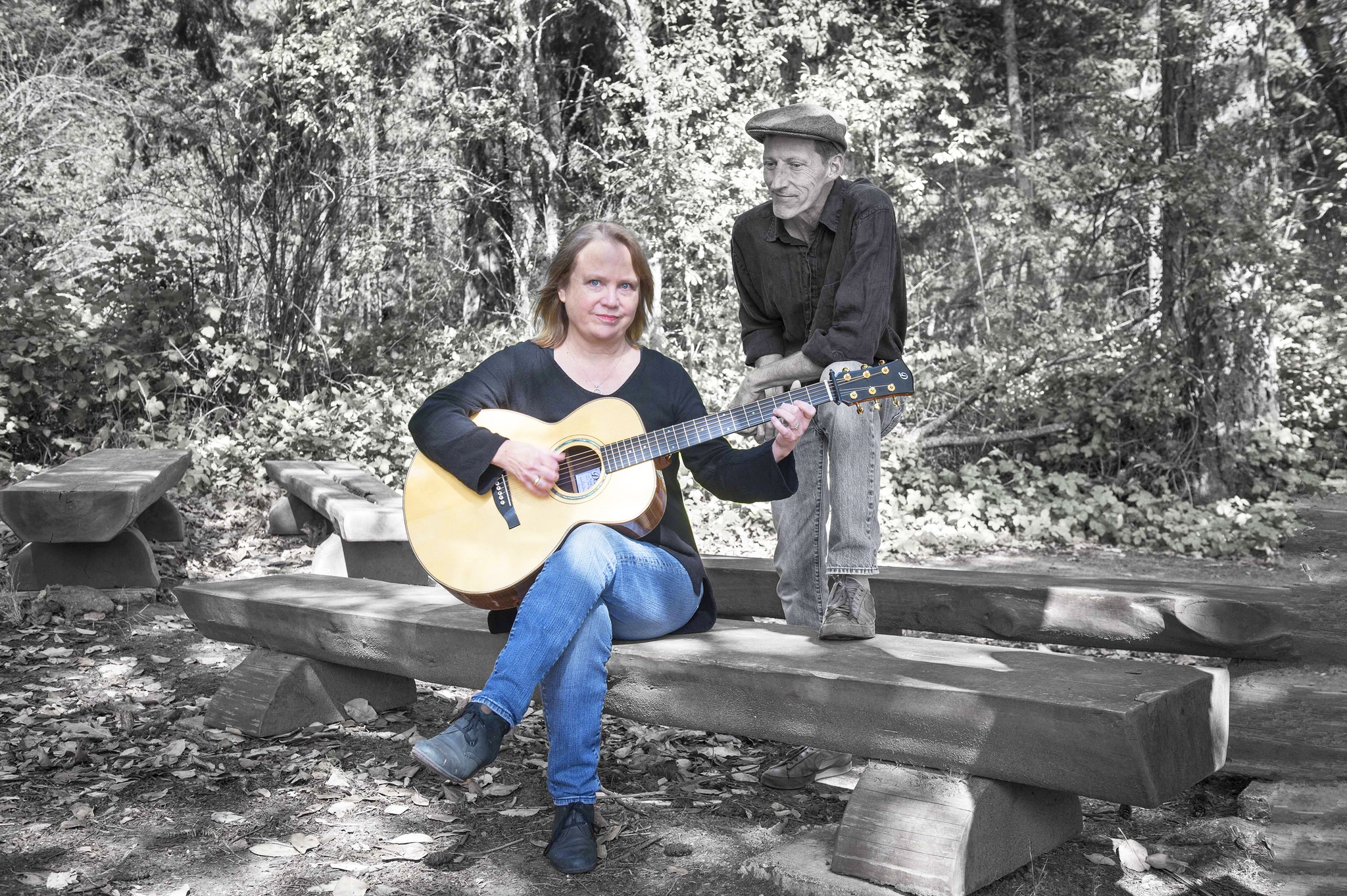Coffee is widely known to be fertilizer for the creative process, and it was over a cup o’ joe that singer-songwriter Kat Eggleston and director-producer Charlotte Tiencken hatched the idea that spawned “The Cyclone Line.”
When Tiencken and Eggleston met that morning in March 2016, the subject was Kat’s dad, Al Eggleston, the inspiration for a few of Kat’s best songs about America’s Depression-era Dust Bowl. The light bulb went off again that afternoon. Actually, it was more like the starting gun for a race to get Al’s story of life as a child in the Dust Bowl down on paper and ready for the stage.
That race will cross the finish line Friday, Nov. 4, on the stage of the Katherine L White Hall when “The Cyclone Line” has its world premiere. A second performance happens Saturday, Nov. 5, same time, same place.
Watching the growth of this story as its stage manager has been a profound opportunity to explore a little known, and largely ignored, period of American history. As Eggleston puts it in her script, “In school, there seemed to be loads of other dry facts that were thrown at us, but nothing about The Dust Bowl, the so-called ‘Dirty Thirties’ with their thick, black rolling clouds that brought dust pneumonia and blew the crops away. We learned very little about the Great Depression as a whole … Maybe a kind of social amnesia had set in since then.”
While history all but ignored The Dust Bowl, author George Steinbeck illuminated it in “Grapes of Wrath,” and Seattleite Tim Egan more recently detailed its causes and impacts in his book “The Worst Hard Time.” For Eggleston’s play, the title is derived from the loosely strung telephone lines that carried vital weather information along a barbed wire party line during the horrible years of The Dust Bowl. This so-called “cyclone line” also carried the voices of families living through the nightmare of black clouds carrying dust.
Eggleston grew up with a front row seat to a child’s-eye view of life during this worst of America’s human-made disasters. Her play is personal as she recreates kitchen table talks with her dad from his childhood through old age in an Alzheimer’s patient facility.
Both writer and director agreed immediately on their choice of actor to play Al through his ages. Seattle thespian Brian Gunter (Woody Guthrie in “East Towards Home,” winner of The Bay Area Critics Circle Award) accepted their enthusiastic invitation and delivers a moving performance as Al the kid, the artist and the old man — perpetually curious about all that life holds. Anna Martinsen enhances Al’s character throughout with costumes that cue the time.
“Isn’t that amazing!” was Al’s favorite phrase, and that spirit saved him from the despair that ruined so many in the “Dirty Thirties.”
While Al’s tales are personal, the stories are universal to all who endured the horror that greed inflicted on the land and the people of Oklahoma, Kansas and Texas in the 1930s.
Eggleston does Al’s stories proud in dialogue and most eloquently in her original music written for this play. There is no way to listen to “Rain,” “Africa” or “The Days” without a catch in the throat, for tears or a laugh. Island musician Mark Graham will back up Eggleston’s songs and add to the play’s score.
Under Tiencken’s sensitive direction, Al has come to life and made it possible to taste dirty, dry shame along with the triumph of human spirit through the most unspeakable of experiences. All this occurs in one intimate 90-minute visit with a remarkable man and his gifted daughter.


